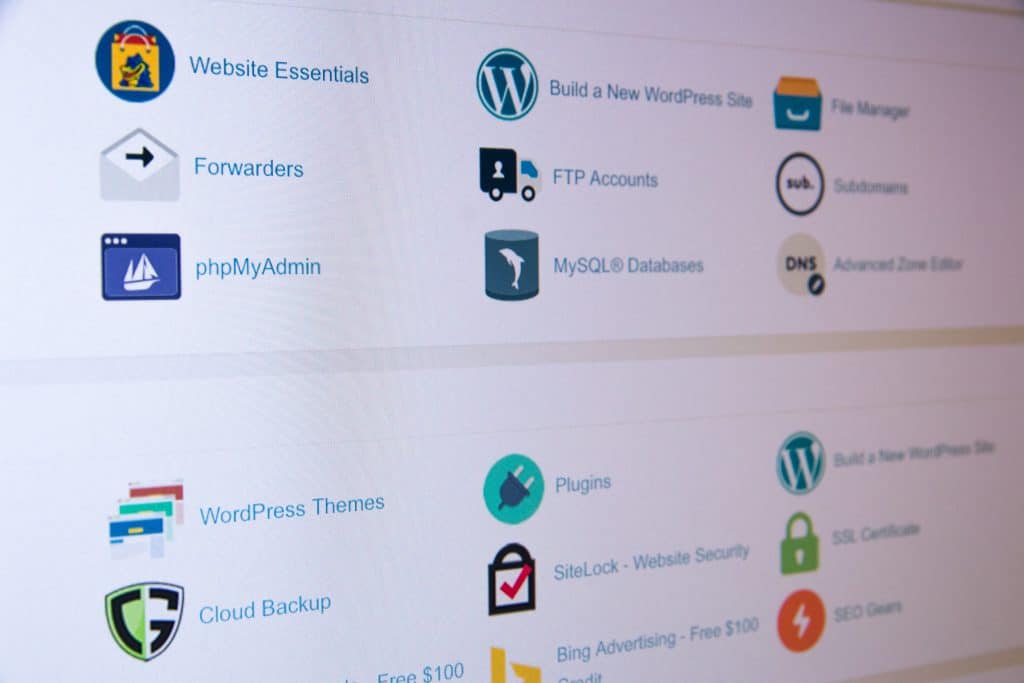10 Tips to Keep Your Website Safe from Attacks
- By Douglas Moore
- Last Updated On December 14, 2022

According to Sophos Labs, nearly 11 million websites are hacked yearly, with an average of 30,000 hacks daily.
This alarming statistic proves that we must all step up our cybersecurity game if we own or manage a website.
Fortunately, the best methods to minimize or prevent cybersecurity threats are the simplest ones. In this post, we’ll explain how to check if your site is secure and share ten effective tips to keep your website from attacks.
How to Secure Your Website From Hackers – 10 Effective Tips
1. Opt for a Secure Web Hosting Solution
The last thing you want is hackers accessing and taking control of your data and web infrastructure. To avoid it, you should choose a secure and reputable web hosting company to keep your website safe.
Most reputable hosting solutions in the market equip their infrastructures with powerful security protocols and backup solutions. These ensure your data remains secure at all times from malware, DDoS attacks, and other threats.
2. Install an SSL Certificate

Looking closely at the search bar when browsing different websites, you will see the word “HTTPS” or “HTTP” before the URL. HTTPS indicates that the website is secure for information exchange, such as payment cards, contact numbers, emails, etc.
You need to install an SSL certificate to have HTTPS on your site. Ideally, it would be best to install an SSL certificate while building your site. This way, you’ll ensure that all sensitive information sent to your server is encrypted.
Many website builders, such as Wix and Squarespace, offer SSL certification by default. Moreover, most web hosting services, including WordPress and Bluehost, allow users to install them from their cPanels.
3. Secure Your Web Server
Your web server is the essential component of your website’s infrastructure. It is the gateway to your data, files, applications, and services. Therefore, you need to ensure it’s secure at all times. Here are a few practices you can employ:
- Segregate your site’s staging and development environments to separate files, apps, and data that don’t need direct internet access. Doing so will reduce the risk of damage or loss if your infrastructure is compromised;
- Install a virtual private network (VPN) on your network routers to hide your IP address and traffic. Doing so will encrypt your data flow and prevent hackers from accessing your network and deciphering your files and data. If you’re looking for a VPN, check out the Surfshark Review;
- Provide separate logins for different departments and teams and avoid using shared servers;
- Partition your server storage by creating different data marts;
- Install powerful anti-malware and firewall software and keep them up-to-date.
4. Install and Use a Password Manager
A powerful password manager is one of the best tools you can use to improve website security. Most hackers leverage sophisticated software to crack simple passwords.
Therefore, with the aid of a password manager, you can create a complex master password for your site accounts in uppercase/lowercase letters, special characters, and numbers. Using this solution will also eliminate the need to remember multiple passwords.
5. Keep Your Software Up-to-Date
A typical web infrastructure comprises different applications and solutions, including CMS platforms, anti-malware software, and development apps. Each solution must be updated regularly to prevent hackers from exploiting security flaws.
Similarly, many website builders provide plugins to reduce or eliminate the need for coding. Most of these third-party products require regular updates; otherwise, they increase your attack surface.
6. Use Multi-Factor Authentication
Many experienced hackers possess the tools and expertise to bypass even the strongest passwords. Therefore, multi-factor authentication is one of the most effective ways to add an additional layer of security to your accounts and applications.
Many website builders, hosting solutions, and CMS platforms offer 2FA using one-time passwords (OTP) sent via email, SMS, or both. If you’re building a site from scratch, you can integrate Google’s Identity Platform for user authentication.
7. Backup Your Data
Backing up your data is one of the most important security measures you can employ to ensure your data and applications remain accessible following a hack or disaster. Most web hosting services and CMS platforms provide backups through their services.
You can further reduce the risk of data loss by creating additional backups for your database and content manually.
8. Perform Regular Security Audits
One of the best ways to check and improve website security is to have your infrastructure regularly audited by IT security professionals. If you don’t have an in-house team, you can hire an external security company to monitor for malicious activity and take care of essential repairs and maintenance.
9. Leverage Popular Website Security Tools
Today, you can find hundreds of free and paid tools you can use to secure your website, including:
- Tools for protection against spyware, malware, Trojan, DDoS attacks, and other attacks;
- Tools for tracking malicious activities on web-based SaaS applications and ensuring compliance with different standards (GDPR, DSS, etc.);
- Tools for detecting security exposures on websites.
10. Conduct Staff Training
Finally, you need to understand that even the most powerful web infrastructures are vulnerable to threats due to human errors. Hence, training your staff is just as important as leveraging powerful security solutions and employing effective practices.
You must train them to remain wary of phishing emails, download software from unofficial sources, and adopt effective practices, such as not sharing personal information or login data.
Can WordPress Websites Be Easily Hacked?
In case you’re unaware, no content management platform is 100% secure from Cybersecurity threats, including WordPress. The only difference between WordPress and other CMS solutions is that it possesses a high-quality security infrastructure in its core software to reduce the risk posed by threats.
However, WordPress sites are susceptible to hacks due to issues caused by outdated themes and plugins and poor security practices, such as weak passwords, common Admin usernames, and free web hosting solutions.
How Do I Make Sure My Website Is Secure?
There are many ways to check if your site is secure, including:
- Checking if the URL begins with HTTPS, indicating your site is using an SSL certificate;
- Using security tools, such as anti-malware software, to scan for malicious activities or files in your web infrastructure;
- Looking for red flags in your site’s content, such as false or missing information. Many hackers who gain access to sites add spam, pop-ups, and redirects.
Wrapping Up
Websites have become the digital door front for millions of businesses worldwide. However, as a website, you must ensure your website’s door remains closed to intruders and hackers looking to steal your data or compromise your web infrastructure.
Using the tips in these articles, you can step up your IT security game and prevent reputational, legal, operational, and financial damage to your online business.